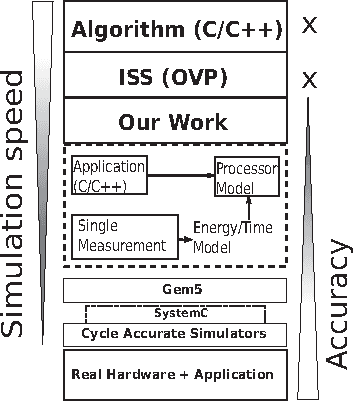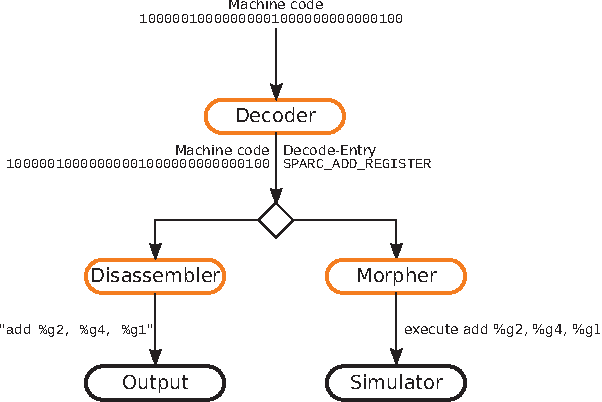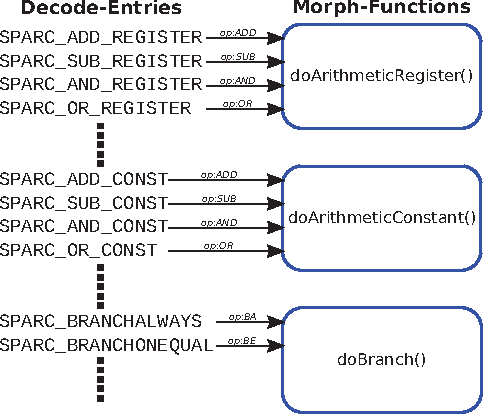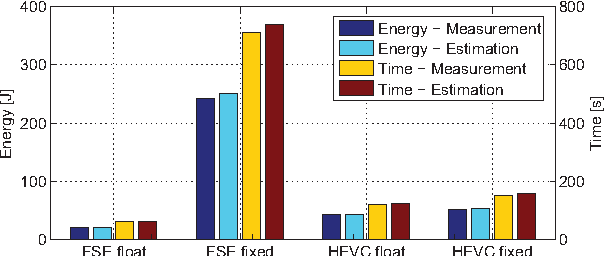Estimation of Non-Functional Properties for Embedded Hardware with Application to Image Processing
Paper and Code
Mar 03, 2022



In recent years, due to a higher demand for portable devices, which provide restricted amounts of processing capacity and battery power, the need for energy and time efficient hard- and software solutions has increased. Preliminary estimations of time and energy consumption can thus be valuable to improve implementations and design decisions. To this end, this paper presents a method to estimate the time and energy consumption of a given software solution, without having to rely on the use of a traditional Cycle Accurate Simulator (CAS). Instead, we propose to utilize a combination of high-level functional simulation with a mechanistic extension to include non-functional properties: Instruction counts from virtual execution are multiplied with corresponding specific energies and times. By evaluating two common image processing algorithms on an FPGA-based CPU, where a mean relative estimation error of 3% is achieved for cacheless systems, we show that this estimation tool can be a valuable aid in the development of embedded processor architectures. The tool allows the developer to reach well-suited design decisions regarding the optimal processor hardware configuration for a given algorithm at an early stage in the design process.
 Add to Chrome
Add to Chrome Add to Firefox
Add to Firefox Add to Edge
Add to Edge